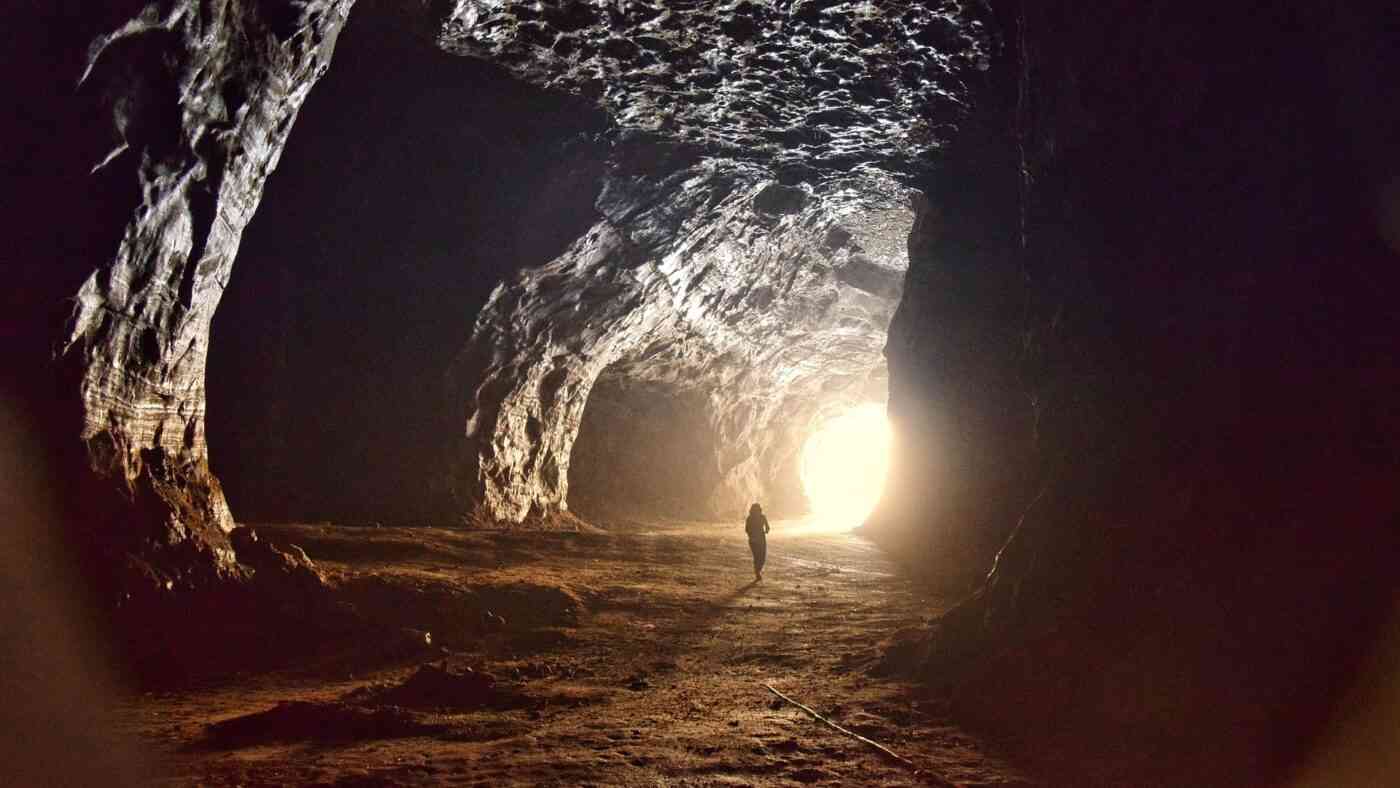Science
Humanity’s Oldest “Business Card”: This Human Handprint Is Nearly 68,000 Years Old
03 February 2026

Even in the era of the Polish nobility, many chroniclers, publicists, and parliamentary speakers condemned or ridiculed the so-called "living beyond one's means." They were fixated on novelties and constant competition to see who could appear wealthier, more original, and with greater pomp. This is when the proverb "pawn yourself to show yourself" was born, which means that some people, in order to arouse the admiration of others, can bring financial ruin upon themselves.
The desire to dazzle and amaze observers with one’s possessions is as old as humanity itself. Even in stories about ancient Rome, we hear of great magnates who tried to flaunt their vast wealth. They would throw dazzling feasts where they served the strangest and most expensive dishes (e.g., a pâté of nightingale tongues) and drinks (e.g., pearls dissolved in wine). They also organized games with animals brought from the very ends of the known world.
Why, one Roman magnate, Didius Julianus, even bought the imperial crown for himself, winning an auction among the Praetorian Guard! However, his wealth did him little good when, two months later, the troops of his rival entered Rome. And Didius was murdered by the very same Praetorians from whom he had bought power.
Interestingly, Didius did not seem to fit the image of a foolish rich person dazzled by splendor. He was not only fabulously wealthy but also had a successful military career as a legion commander and a successful official and administrative career as the governor of several large Roman provinces. So you see, the false glow of a crown can dazzle even such people.
You might like to read: Jacek Piekara: The Price of Naive Hospitality? Fear on the Streets
Moving to times and lands closer to us, I must mention the Polish – Lithuanian Commonwealth. There was a time in our history (the 16th and the first half of the 17th century) when many citizens became very wealthy, primarily due to the trade in agricultural products. We exported grain in vast quantities, but also cattle and pigs. Noble fortunes grew by leaps and bounds. And many nobles did then what people unaccustomed to wealth often do when they suddenly become rich: they squandered this money left and right.
Anyone with more means built a stone palace or castle instead of a wooden manor. Those with a little less, however, brought in gardeners from France to design a French-style garden for them. Money was also spent on various novelties: mechanical toys and clocks, glasses, panes, crystal mirrors, and perhaps most of all: on servants. On servants who were often useless for anything other than a representative purpose.
All so that the lord of the manor, in a carriage and surrounded by uniformed hajduks, could go to church with pomp, amazing the neighborhood. Chroniclers describe how one such extravagance by a nobleman often prompted the entire neighborhood to compete over who could present themselves in a grander fashion. Besides, the nobility, both poor and rich, had an example set from the very top, namely from the magnates.
Magnates in the Commonwealth were incredibly wealthy, not just by Polish-Lithuanian standards but by a European-wide comparison. They could impress the whole known world with their fortune, and they were happy to boast about it, not only to boost their own ego but also because they considered it an element of building political influence.
Unfortunately, these nouveau riche frenzies often ended in disaster. The cold, stone castles were abandoned (historians even claim that more castles in the history of the Commonwealth fell into ruin due to abandonment than due to war), there was no one to skillfully tend to the gardens, and they withered; mechanical toys broke (and there were no professionals to fix them); decorative, expensive windowpanes shattered and cracked, so the window openings were stuffed with straw to protect against the cold. And so on and so forth…

Are we better than our ancestors today? Oh, no. If anything, we are worse or the same. Maybe most of us can’t afford to build our own castles, but we still remember:
I also remember the years when for many people, the simplest indicator of social status was owning an Apple phone. You would often see young men ostentatiously placing their phones on a club or cafe table so that everyone could see the company’s characteristic apple logo. It was a signal to those around them: I am someone better; I am doing great in life. The fact that the iPhone was often bought on an installment plan or with a loan is another matter.
Read also: Jacek Piekara: The Witcher Was Almost Doomed Before It Even Began
Excessive consumption causes gigantic environmental and health losses, but also social ones. People eat too much, buy too many clothes, have too many cars, phones, electronic devices, use too much energy, and pollute the environment too much – all of this is true.
The unbridled rush to consume is fueled by advertising, the overproduction of many goods, and supported by the ruthless policies of corporations that use cheap, slave labor from Third World countries. On the other hand, horrendous ideas for saving are being born. To force us all into modesty, concepts for the mandatory limitation of all goods are emerging: from food to clothes to cars.
If you were to exhaust your allocated limit, money would no longer help you. You would have to wait until your limit renewed and the option to shop became active again. Three outfits per year, one plane flight every two years, giving up meat, limiting dairy, introducing credit cards that record our “carbon footprint” – these would seem like ideas from gulag-states or science-fiction dystopias, but in reality, they are seriously being considered by institutions associated with the European Union.
I will tell you that what I always feel the most sorry for is wasted food. And not because of the “eat because you are picky, while children in Ethiopia are starving” argument, because that argument doesn’t hold much water.
But in Poland alone, we waste a monstrous amount of 4.8 million tons of food annually. Do you know how much that is? That’s 80 thousand fully loaded railroad cars.
Lined up one after another, they would take up 1,200 kilometers of track. That’s the distance from Białystok to Munich! All of this we squandered and threw away. In one year!
Worth reading: To Have or to Be? How to Truly Live Through the Holiday Season
So we are being killed by the rush for ever-greater attractions (which are quickly forgotten and abandoned, because it’s often just about the momentary pleasure of having something attractive in our hands) and rampant consumerism. Of course, no one is telling us to live in asceticism: to starve, flagellate ourselves, or eat stale bread and rotten fruit (the favorite diet of the French King Louis the Saint). But it’s worth looking around and asking: do I really need this? These new shoes, this new jacket, this new smartphone, this new streaming subscription? And then to drill one, supremely important sentence into your head: “POSSIBILITY DOES NOT MEAN NECESSITY.”
Read the original article: Zastaw się, postaw się. Jacek Piekara o toksycznym szpanie
Science
03 February 2026



Zmień tryb na ciemny